Turns out, half the things we think we know about food are either outdated or flat-out wrong. We’re talking about myths so ingrained, you’d think they came stamped on every grocery receipt. From the “rules” around carbs to the eggs-and-cholesterol debate, food advice often feels more like folklore than fact. Get ready to unlearn some of the greatest hits of food misinformation that have been hanging around your kitchen way too long. (And, just a heads up — this isn’t health guidance, so always check with a professional for personal advice.)

You need to drink eight glasses of water a day

The “8 glasses a day” rule is a common guideline, but it’s not one-size-fits-all. This likely originated from a 1945 recommendation by the U.S. Food and Nutrition Board, which suggested a daily water intake of 2.5 liters. However, they also noted that much of this amount comes from food, though this part is often overlooked. Hydration needs vary based on factors like age, sex, activity level, and climate. The National Academies of Sciences, Engineering, and Medicine recommends about 2.7 liters (11 cups) of fluids daily for women and 3.7 liters (16 cups) for men, including all beverages and food. Listening to your body’s thirst signals is a great way to stay hydrated.
Going vegetarian makes you healthier
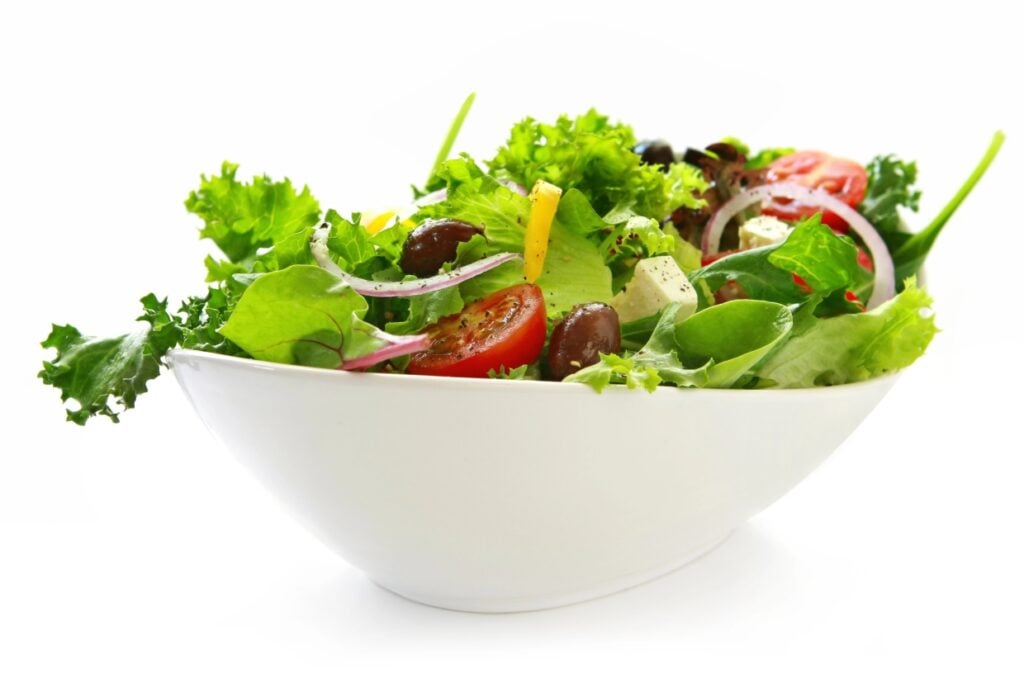
Switching to a vegetarian diet doesn’t automatically make you healthier. While plant-based diets can be rich in nutrients, it’s possible to miss out on essential nutrients like vitamin B12, iron, and omega-3 fatty acids if not planned properly. This myth persists because plant-based diets are often linked with health benefits but require careful planning. To stay healthy on a vegetarian diet, include a variety of fruits, vegetables, whole grains, legumes, nuts, and seeds, and consider fortified foods or supplements for nutrients that are harder to get from plants.
Detox diets cleanse your body

Many believe that detox diets flush toxins from the body. However, the body naturally detoxifies itself through the liver, kidneys, and digestive system. Detox diets often lack scientific backing and can sometimes be harmful. This myth persists due to marketing claims and anecdotal success stories. For better health, focus on a balanced diet rich in fruits, vegetables, whole grains, and lean proteins. Staying hydrated and limiting processed foods also support the body’s natural detox processes.
Carbs are bad for you
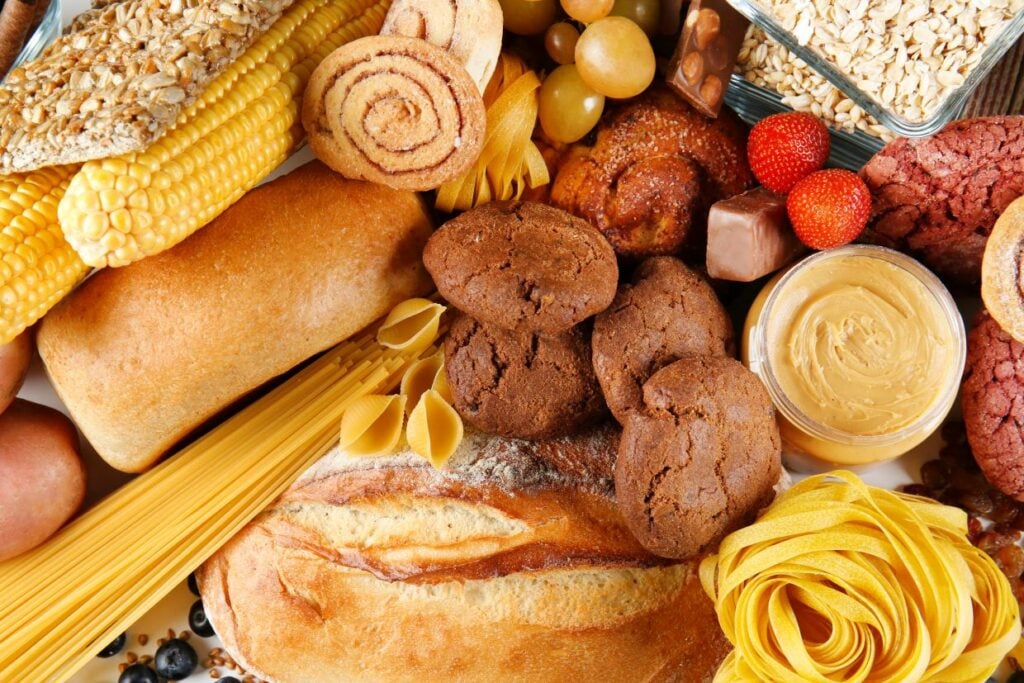
The idea that all carbohydrates are harmful is a common misconception. Carbohydrates are a primary energy source for the body, essential for brain function and physical activity. The confusion often arises from lumping all carbs together, ignoring the difference between refined carbs (like sugary snacks) and complex carbs (such as whole grains and vegetables). While overconsumption of refined carbs can lead to health issues, complex carbs are beneficial. They should be part of a balanced diet. To eat healthier, focus on incorporating whole grains, fruits, and vegetables into your meals and limit your intake of processed foods high in added sugars.
Salt is the main cause of high blood pressure

Many believe salt alone is responsible for high blood pressure. While excessive sodium can raise blood pressure in some people, it’s just one piece of the puzzle. Factors like genetics, lifestyle, and overall diet also influence blood pressure. The belief sticks around partly because sodium-packed processed foods are so common. Managing blood pressure effectively means looking beyond salt and considering the bigger picture.
Eating fat makes you fat

The notion that consuming fat leads directly to weight gain oversimplifies nutrition. Fats are essential for absorbing vitamins and supporting cell function. The key is distinguishing between unhealthy fats (like trans fats) and healthy fats (such as those found in avocados and nuts). This myth likely stems from past dietary guidelines that recommended low-fat diets without differentiating fat types. For a healthier approach, include sources of healthy fats in your diet and be mindful of portion sizes to maintain a balanced intake.
Supplements are necessary for every nutrient

Many think supplements are necessary for all nutrients. In reality, a balanced diet usually provides the essential vitamins and minerals needed. Supplements can be helpful in certain situations, like during pregnancy or for individuals with specific deficiencies, but they’re not necessary for everyone. Over-reliance on supplements can lead to imbalances and health issues. This misconception is often fueled by marketing and a desire for quick health fixes. Instead, focus on eating a variety of nutrient-rich foods. Consult a healthcare provider before starting any supplement regimen.
Microwaving food is dangerous to health

Microwaving food is generally safe and doesn’t pose health risks when used properly. Microwave ovens use non-ionizing radiation to heat food, which doesn’t make the food radioactive or harmful. In fact, microwaving can help retain food nutrients better than other cooking methods. Since it cooks food quickly and with less water, it preserves vitamins and minerals that might otherwise be lost. This myth might come from misunderstandings about radiation and food safety. To use your microwave safely, avoid heating food in plastic containers not labeled as microwave-safe, and follow the manufacturer’s instructions.
All processed foods are unhealthy
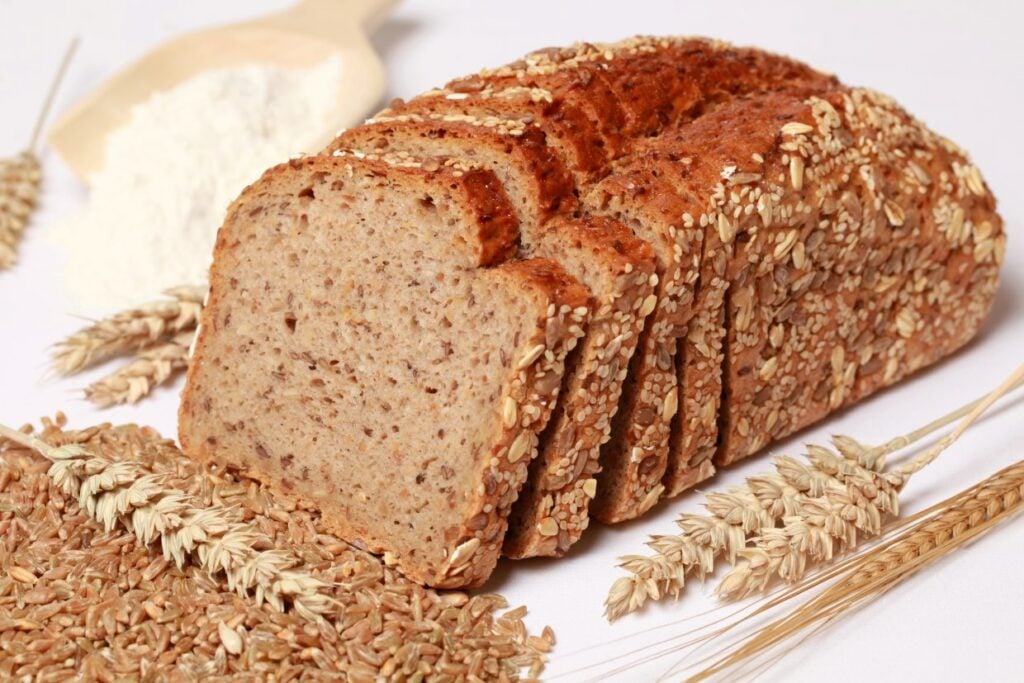
Not all processed foods are bad. The myth stems from confusion over the term “processed.” Processing simply means altering food from its natural state, ranging from basic steps like freezing or canning to more complex methods. Some processed foods, like whole-grain bread or fortified cereals, can be part of a healthy diet. The real concern is with ultra-processed foods, such as sugary drinks and ready-to-eat meals that often have added sugars, unhealthy fats, and artificial additives. Eating a lot of these can lead to health issues like obesity, heart disease, and diabetes. To eat healthier, choose minimally processed items and read labels to avoid added sugars, unhealthy fats, and high sodium levels.
Frozen fruits and veggies aren’t nutritious

Many believe that frozen fruits and vegetables are less nutritious than fresh ones. In reality, produce is often frozen at peak ripeness, preserving its nutrient content. In some cases, frozen produce can even have more nutrients than fresh items that have been stored for a while. For example, frozen spinach often has higher levels of certain nutrients than fresh spinach stored for a few days. This misconception may come from the idea that processing diminishes nutritional value. However, freezing is a method that maintains most vitamins and minerals. Choose plain frozen fruits and vegetables without added sauces or sugars to ensure you get the most nutrients.
Eating late at night leads to weight gain

The belief that eating late automatically causes weight gain is common, but weight gain actually depends more on overall calorie intake and physical activity than meal timing. This myth persists partly because late-night snacks tend to be high in calories. Some studies suggest that eating later can affect hunger hormones and reduce calorie burning, which may contribute to fat storage. To manage weight, focus on portion control and make healthier snack choices if you’re hungry at night. Keeping regular eating patterns can also support appetite regulation.
Dairy products are fattening and unhealthy

Some think dairy products are fattening and bad for you. In reality, dairy contains essential nutrients like calcium and vitamin D, which are important for bone health. Studies suggest that moderate dairy consumption doesn’t necessarily lead to weight gain and may even help with weight management. This misconception might come from concerns about saturated fat in full-fat dairy. For a balanced diet, opt for low-fat dairy options and watch your portion sizes.
Sugar causes hyperactivity in children

Many parents believe that sugar makes kids hyperactive. Scientific studies have not found a direct link between sugar intake and hyperactivity. A comprehensive analysis of multiple studies also found that sugar does not affect children’s behavior or cognitive performance. This myth may continue because sugary treats are often consumed during exciting events. For better health, it’s still wise to limit added sugars to prevent other issues like tooth decay and obesity. Encouraging balanced meals and snacks can help maintain steady energy levels in children.
Eggs raise cholesterol and are bad for the heart

Many believe that eating eggs increases cholesterol and harms heart health. However, recent studies show that dietary cholesterol from eggs doesn’t significantly impact blood cholesterol levels for most people. The idea that eggs are harmful likely stems from their cholesterol content, but it’s actually saturated and trans fats that have a greater effect on blood cholesterol. For most healthy adults, eating 1–2 eggs a day is safe, depending on how much other cholesterol is in your diet. So, enjoying eggs in moderation can be part of a balanced diet.
Fruit juice is healthy

While fruit juice contains vitamins, it’s often high in sugar and lacks the fiber in whole fruits. Drinking juice can lead to rapid spikes in blood sugar, which isn’t great for health. This misconception persists because juice is made from fruit, but processing removes most of the fiber in whole fruits, which is essential for digestion and helps regulate blood sugar. Opting for whole fruits is a better choice, as they have fiber and help you feel full longer. Limit juice consumption to small servings, such as 4 ounces per day, to enjoy the benefits without excessive sugar intake.
Low-fat foods are always the healthier choice

Low fat doesn’t automatically mean healthier. Many low-fat or fat-free products have extra sugar, salt, or refined carbs to make up for the flavor lost when fat is removed. This can lead to consuming more calories and fewer nutrients. This myth started during the low-fat craze of the 1980s and 1990s, but we’ve since learned that healthy fats are important for our bodies. Instead of focusing solely on fat content, choosing whole, minimally processed foods and paying attention to added sugars and overall nutrition is better.
Fat-free equates to calorie-free
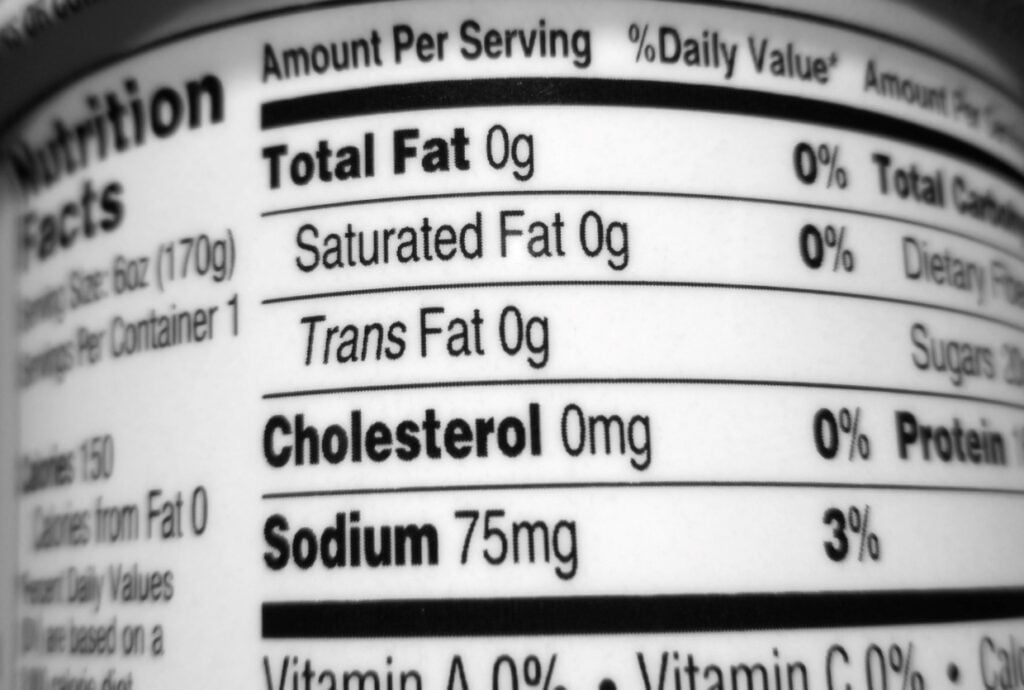
Fat-free foods aren’t necessarily low in calories. “Fat-free” means a product has less than 0.5 grams of fat per serving, but it doesn’t mean it has no calories. To make up for the lack of fat, manufacturers often add sugars, carbohydrates and other ingredients, which can increase calorie content. This myth likely comes from the assumption that removing fat reduces calories, but that’s not always true. Reading nutrition labels is key to understanding what’s in your food and making informed choices.
Eating spicy food causes ulcers

It’s a common belief that spicy foods cause ulcers, but that’s not the case. Most ulcers are caused by a bacterial infection (H. pylori) or long-term use of certain pain relievers, not by spicy foods. This myth might come from the fact that spicy foods can irritate existing ulcers, making symptoms worse. If you have ulcers, it’s best to avoid foods that bother you, but for most people, enjoying spicy foods in moderation is just fine. If you have stomach issues, talk to a healthcare provider to find out what’s really going on.
Give up all your favorite foods to lose weight

Many think that losing weight means cutting out all the foods you love. In reality, it’s about balance and moderation. Depriving yourself can lead to cravings and overeating later. This myth sticks around because extreme diets often promise quick results but are hard to maintain. Instead, enjoy your favorite treats in smaller amounts and focus on a diet rich in fruits, vegetables, lean proteins, and whole grains. This way, you can lose weight without feeling deprived.
Gluten-free will help you eat healthier
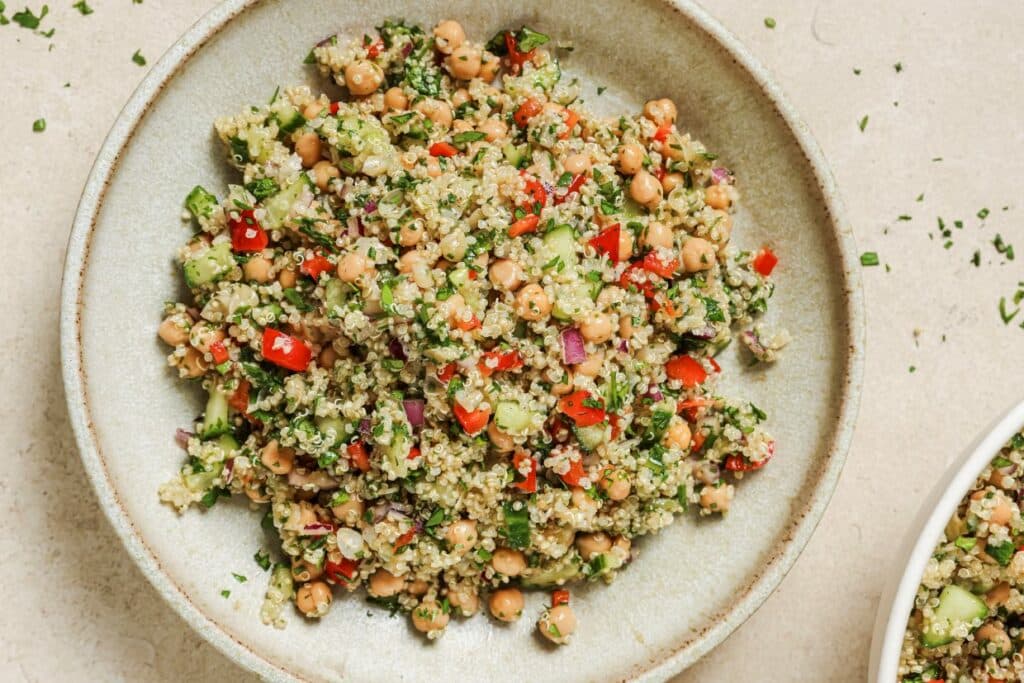
Some believe that going gluten-free automatically means a healthier diet. However, many gluten-free processed foods can be lower in important nutrients like fiber, vitamins, and minerals. Some gluten-free products may also have higher amounts of sugar and fat to improve taste and texture. This myth persists because “gluten-free” is often marketed as a health trend. Unless you have celiac disease, gluten sensitivity, or other medical reasons to avoid gluten, there’s no need to cut it out. Focus on whole, unprocessed foods like fruits, vegetables, lean proteins, and whole grains to eat healthier.
Grain products are fattening

Many believe that eating grain products leads to weight gain. However, whole grains like brown rice, oats, and whole wheat are packed with fiber, which helps you feel full and can aid in weight management. Research shows that people who eat more whole grains tend to gain less weight over time. This myth likely comes from confusing whole grains with refined grains, such as white bread and pastries, which can contribute to weight gain. To keep a healthy weight, choose whole grains over refined ones.
Eating mostly salads and greens means a healthy weight
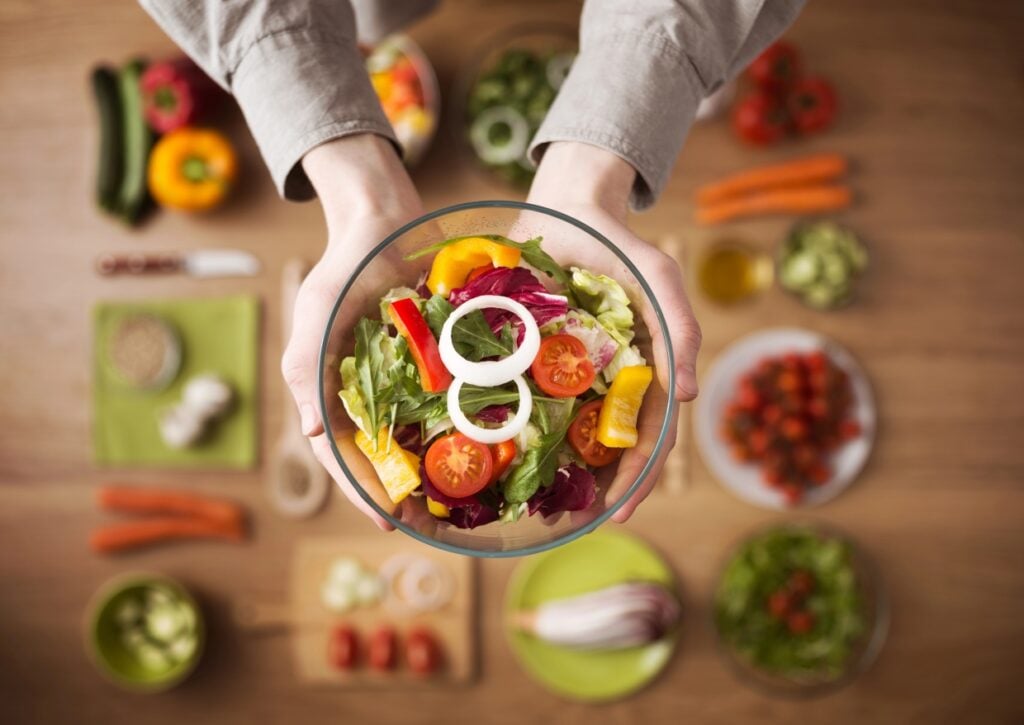
Relying mainly on salads and greens for weight loss isn’t always effective. While they’re low in calories and high in vitamins, they might not have enough protein or healthy fats, which are important for feeling full and maintaining muscle mass. This myth likely comes from the idea that low-calorie foods lead to weight loss. For a balanced diet, add lean proteins like chicken or tofu, healthy fats like avocados or nuts, and whole grains to your meals to meet your nutritional needs.
Brown sugar is better than white sugar

Many think brown sugar is healthier than white sugar, but they’re quite similar in terms of nutrition. Brown sugar contains molasses, giving it a slightly higher mineral content, including small amounts of calcium, potassium, iron, and magnesium. However, these differences are minimal and don’t have significant health benefits. This myth persists because brown foods are often considered more natural or less processed. To reduce sugar intake, limit brown and white sugars, and consider natural sweeteners like honey or maple syrup in moderation.























Leave a Reply